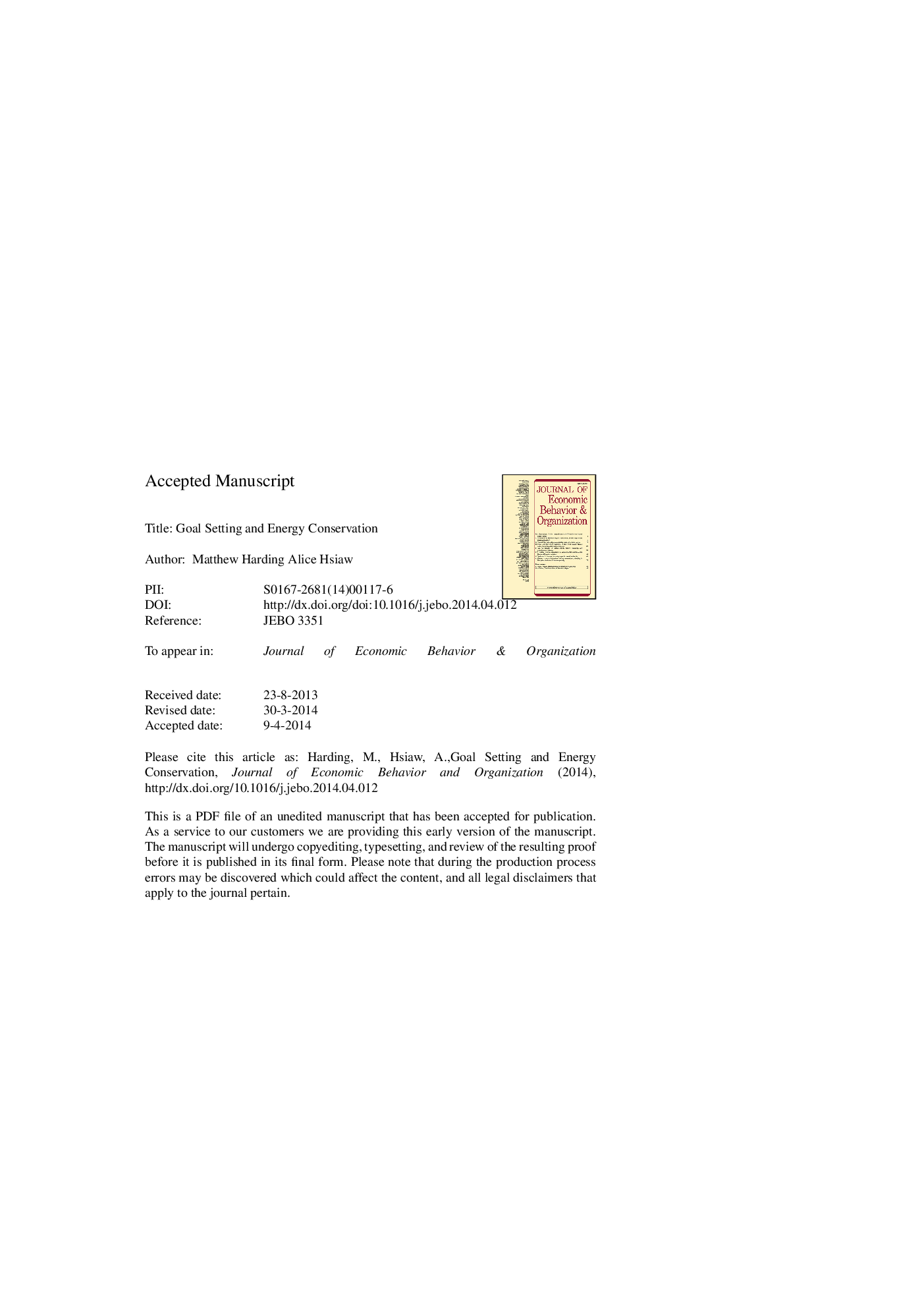| Article ID | Journal | Published Year | Pages | File Type |
|---|---|---|---|---|
| 10437674 | Journal of Economic Behavior & Organization | 2014 | 40 Pages |
Abstract
This paper develops a theoretical model of consumer demand for an energy conservation program that involves non-binding, self-set goals. We present evidence from a Northern Illinois goal-setting program, aimed at reducing residential electricity consumption, which is difficult to reconcile with standard preferences and is broadly consistent with a model of present-biased consumers with reference-dependent preferences. We find that the need for commitment is correlated with program adoption, higher pre-adoption consumption, and lower responsiveness to goals. Consumers choosing realistic goals persistently save substantially more, achieving savings of nearly 11%, than those choosing very low or unrealistically high goals.
Related Topics
Social Sciences and Humanities
Economics, Econometrics and Finance
Economics and Econometrics
Authors
Matthew Harding, Alice Hsiaw,
